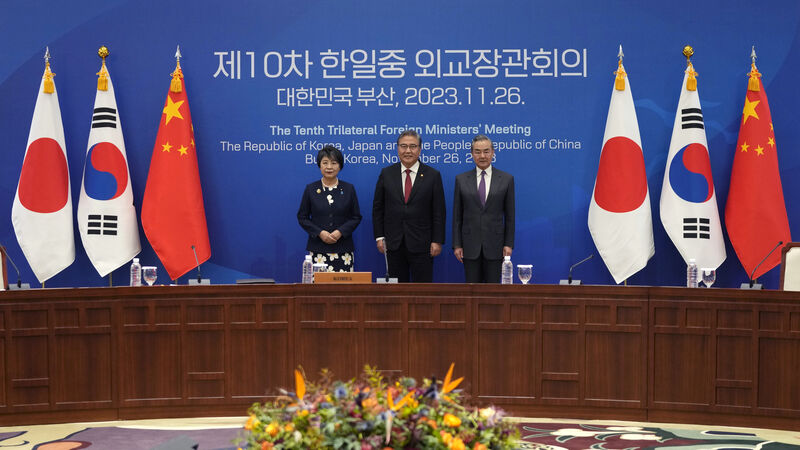South Korea, Japan and China agree to resume co-operation after four years

Meeting for the first time in about four years, the top diplomats from South Korea, Japan and China agreed on Sunday to revive co-operation among the Asian neighbours and resume their leaders’ trilateral summit — but without a specific timing.
Closely linked economically and culturally with one another, the three countries together account for about 25% of the global gross domestic product.











